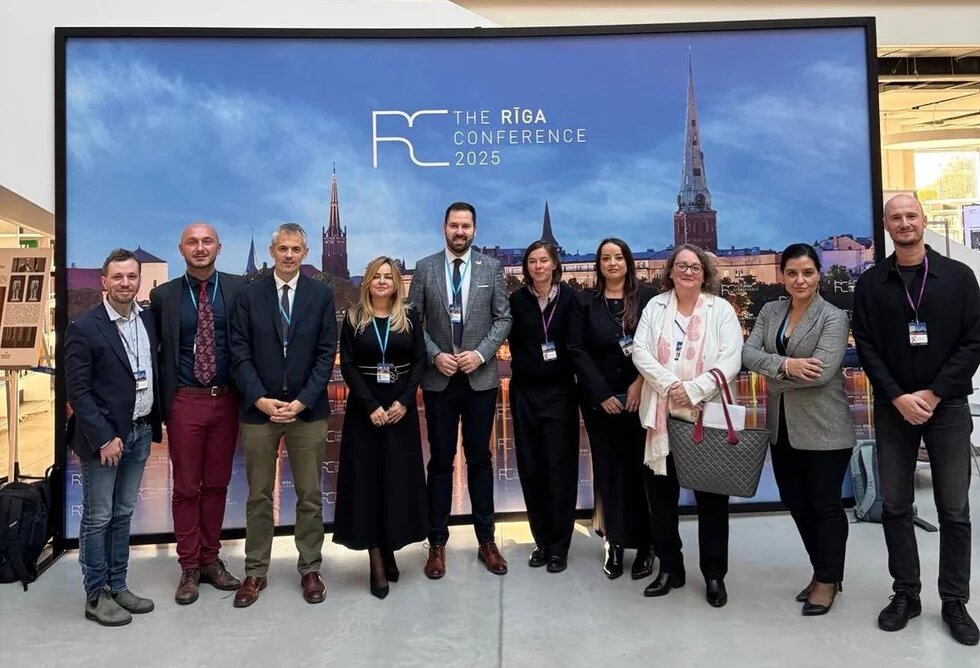- The need for a more active engagement of the Baltic states in pursuing a merit-based EU enlargement was underlined by members of the Western Balkans 6 Strategy Group and their Latvian counterparts during a panel at the 2025 Riga Conference. The visit to Estonia and Latvia took place amid growing concerns among transatlantic partners about Russian destabilization efforts and the need to reinforce Europe’s eastern security architecture.

Riga/Tallinn, October 10th 2025 - During their visit to Tallinn and Riga, the delegation met with representatives of the Estonian Ministry of Foreign Affairs, the Latvian Parliament, and local think-tanks engaged in foreign and security policy, democratic development and EU enlargement. These meetings emphasized how Baltic experiences of rapid reform on their European integration path and consistent alignment with EU principles offer lessons for the Western Balkans on how to turn small size into strategic strength.
The visit deepened cooperation between the two regions at civil society level, aiming to strengthen the case for enlargement and to promote transformative democratic change in the Western Balkans. Although geographically distant, the Baltic and Western Balkan states share similar challenges: managing external pressure, defending democratic gains and overcoming perceptions of marginality within Europe. The Baltics, once seen as the EU’s periphery, have become influential agenda-setters on security and foreign policy matters. Emphasized was the constructive competition among the Baltic states back in the 2000s before they joined the EU —a role model lacking in the Western Balkan countries. Their experience demonstrates that resilience and working together allow small states to punch above their weight, something the Western Balkans can emulate on their own path toward EU membership.
Participants agreed that the Baltics are among the region’s most natural allies in understanding both the geopolitical imperative for enlargement and the security threats facing democratic Europe. The Baltic model can guide Western Balkan efforts to accelerate integration while, conversely, the Western Balkans could bring renewed urgency and credibility to the enlargement debate, reminding the EU why it remains its strongest geopolitical tool.
The delegation called for the Baltic states to use their influence within the EU to advocate for faster accession for reform-minded countries such as Montenegro and Albania, as well as for the stronger enforcement of democratic standards. The Baltic states could also help ensure EU unity on enlargement by resolving bilateral disputes and applying sanctions consistently, while fostering direct Baltic–Balkan cooperation between governments and civil society in shared priority areas such as media freedom, cybersecurity and digital governance.
Full recommendations and analysis are available in the joint paper Bridging Regions, Defending Democracies: Baltic Support for Western Balkan Integration.
_________________
The Western Balkans Strategy Group was established by the Heinrich-Böll-Stiftung to conceptualise and present EU decision-makers with policy proposals aimed at revitalising the EU Accession process of the Western Balkans countries in line with progressive, green, and gender-sensitive values. The group consists of prominent civil society representatives from each of the Western Balkan countries.
Contacts and more information about the group https://ba.boell.org/en/western-balkans-strategy-group